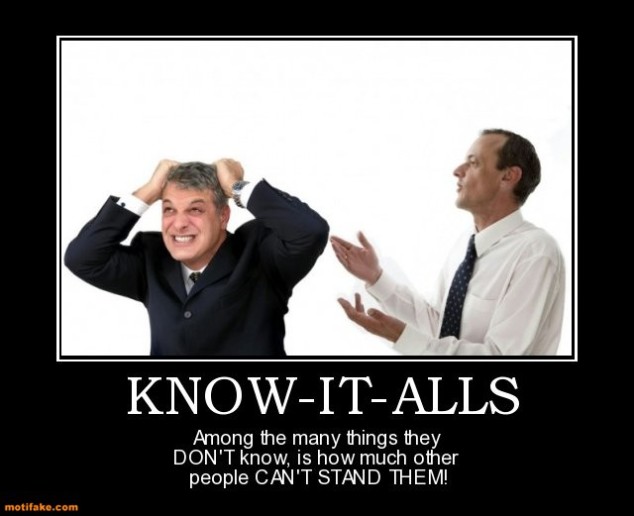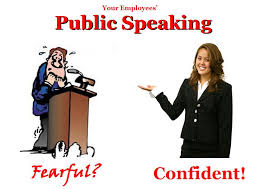Knowledge is knowing what to say, without necessarily saying it all the time. People by nature have an almost automatic aversion towards “know-it-all types”, even if they indeed know it all, most of it or mostly. Even if they “know it all” compared to the ones who think of them as “know-it-alls”. It is just how we are as people.
We don’t like to entertain the idea that people whom we perceive as our “equals in everything”, may suddenly not be so equal in something like “knowledge”, but actually higher than us. That’s why we are more susceptible to accepting the same piece of information (with a nod and a smile) shared by a professor, who’s clearly a PhD. holder, than from a colleague of the same age and education who read more books about the topic, including the professor’s own book on the topic, with only a Bachelor’s degree and an insatiable thirst for knowledge!
Sometimes the reason behind this “aversion”, is that the stereotypical “know-it-all” persons, indeed, tend to be smug & condescending towards others who know less, can do less or who are less extrovert with what they know. Know-it-alls often have a total lack of the kind of social skills and empathy needed to pay attention to such a fact or to make such a quick observation of their surroundings, before they address others or share their knowledge.
Other times, the reason has mainly to do with the recipients of knowledge themselves. Such knowledge can be shared by someone who simply happens to know more, but it is often unnecessarily and unconsciously viewed by the counter-part as “threatening” to their own self-image or own standing (in a group). Such people are mostly insecure or less confident than others, but have a habit of channelling such insecurities the wrong way. There are many people who tackle their low confidence problem by welcoming knowledge from more knowledgeable people without the intervention of things such as “ego” or “comparison to themselves”, thereby turning a “vice” to their own hands by making it rather a virtue.
One can also say that if knowledge is factual, applicable and/or useful to the audience or to the discussion at stake, then it should be shared regardless of how it is received and perceived. But hey, there is a reason why people prefer watching certain types of TV programs; some may reject the idea of liking movies, soaps and entertainment shows and others may make jokes of those who watch discovery channel and national geographic as being “boring” or “not so cool”. A difference is there, and plenty of choices are there to make. And it is okay.
Mastering manners of sharing knowledge and knowing how to channel it responsibly and effectively is a sort of wisdom not everybody has. It is mostly related to age but more often to life experience, social skills and character.
It’s a waste of time, for instance, to share your knowledge of the solar system with those who are still “agnostic” as to whether “the earth is flat” or a “rounded globe”. (not such an extreme example, if you realize there may be people on our global earth, who still pick their brains around this fact)
And it’s also a waste of time to explain the importance of choosing the right accounting software for company operations, to a group of accountants who want to start their own accounting company, during a start-ups seminar, only because it’s part of your one-fits-all proven seminar-script as a coach or a speaker, that has always proven successful with previous seminar attendees.
Wisdom is knowing when, what, how and to whom you should say certain things and when not to.














